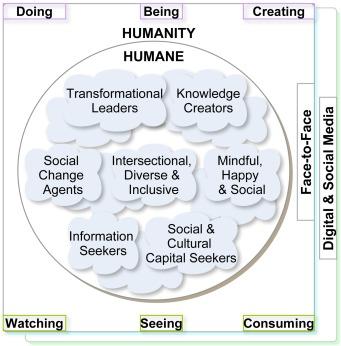how to Prepare Students for Future Job Markets: Essential Strategies for Career Success
Introduction
In today’s rapidly evolving workforce, the skills required to thrive are changing faster than ever. as technological advancements disrupt traditional career pathways and redefine job roles, it’s crucial for educators, parents, and students to focus on preparing for future job markets. Cultivating adaptable skills and a growth mindset are vital for career success, irrespective of industry or field. This comprehensive guide highlights essential strategies, benefits, and actionable tips to empower students to navigate and excel in a competitive employment landscape.
Understanding the Changing Job Market Landscape
The future of work is shaped by automation, artificial intelligence, globalization, and remote collaboration. Traditional jobs are being replaced or reshaped, and entirely new careers are emerging. According to the World Economic Forum,over 40% of current workforce skills will change within the next five years. To excel, students must be equipped with future-ready skills—both technical (such as digital literacy) and soft skills (such as communication and adaptability).
- Technological Advancements: AI, robotics, and data analytics are transforming industries.
- Globalization: Remote work opens global opportunities, requiring cross-cultural communication skills.
- Self-employment Trends: rise of freelancing, gig economy, and entrepreneurship.
Essential Strategies to Prepare Students for Future Careers
Addressing uncertain futures means adopting proactive strategies in education and career planning. Below are time-tested and innovative approaches to future-proof students for success in tomorrow’s job markets:
1. Promote Lifelong Learning
- Encourage continuous education: Beyond formal studies, students should seek online courses, certifications, and workshops to stay current.
- Foster curiosity: Inspire students to explore topics beyond the curriculum, which can spark new interests and career pathways.
2. Build transferrable Skills
- Critical thinking and problem-solving: Nurture analytical skills through debates, project-based learning, and case studies.
- Communication skills: Prioritize writing, presentation, and collaboration activities to ensure students can articulate ideas with confidence.
- Teamwork and leadership: Offer group projects and leadership opportunities within schools or communities.
3. Integrate Technology into Learning
- Digital literacy: teach coding, data analytics, and other tech skills relevant to modern workplaces.
- Use educational technology tools: Allow students to engage with platforms such as Google workspace, Canvas, and WordPress for real-world experience.
4. Encourage Entrepreneurial Mindsets
- Creativity and innovation: Let students work on start-up ideas or participate in entrepreneurial programs.
- risk-taking: Celebrate trial and error, showing that learning from failures can lead to future success.
5. Support Career Exploration and Practical Experience
- Job shadowing and internships: Connect students with professionals in industries of interest for firsthand career insights.
- Mentorship programs: Create mentoring opportunities with industry leaders.
- Career counseling: Guide students through resume writing, interview preparation, and professional networking.
Benefits of Preparing Students for Future Job Markets
- Increased employability: Future-ready students adapt more quickly to new job market trends and demands.
- Greater job satisfaction: Preparation leads to more fulfilling career choices aligned with personal interests and strengths.
- Resilience in uncertain times: Students with a diverse skill set handle change and industry disruptions with confidence.
- Global competitiveness: Empowered students excel not only locally but also on a global stage.
Practical Tips for Educators and Parents
- Encourage real-world learning: Incorporate internships, field visits, and project-based assignments that mimic workplace scenarios.
- Focus on soft skills: allocate classroom time for emotional intelligence, adaptability, and negotiation skills, which are highly valued by employers.
- Use technology to facilitate learning: Leverage platforms like WordPress for student blogging,showcasing portfolios,and digital storytelling.
- Foster personal branding: Help students build LinkedIn profiles and an online presence to attract opportunities.
Case Studies: Successful Approaches in Career Preparation
A. Finland’s Forward-Thinking Education System
Finland’s education emphasizes interdisciplinary studies, problem-solving, and technology integration.Students are encouraged to collaborate and learn real-world skills early, preparing them exceptionally well for future job markets. Education authorities regularly update curricula to match evolving workforce needs.
B. Google Career Certificates
Google’s online certificate program helps learners build high-demand digital skills like IT support and data analytics. Through flexible online learning and employer partnerships,graduates quickly find employment,demonstrating the value of practical,industry-oriented training.
C. Personal Portfolio Growth with WordPress
Many schools now encourage students to create portfolios using WordPress. These digital portfolios showcase projects, skills, and achievements, making students attractive to universities and employers alike.
First-Hand Experience: Student Voices on Career Preparation
“building a coding portfolio helped me land an internship at a tech firm. Our school’s internship program and mentorship were crucial in guiding me through the process, making me feel confident about my career choice.”
– Maria S., High School Senior
“Learning how to present and communicate my ideas was transformative. My teacher encouraged us to participate in debates and write blog posts using WordPress, which taught me valuable communication skills I now use daily at university and in my part-time job.”
– John P., College Freshman
Conclusion
Preparing students for future job markets is a shared responsibility among educators, parents, and the broader community. By fostering lifelong learning, building transferable skills, integrating technology, and encouraging real-world experience, students gain the confidence and competence to thrive in a rapidly changing economy. As the world of work continues to evolve, equipping the next generation with adaptable strategies and essential career skills is the key to lasting career success and fulfillment.
Empower your students today—because the future starts now.

